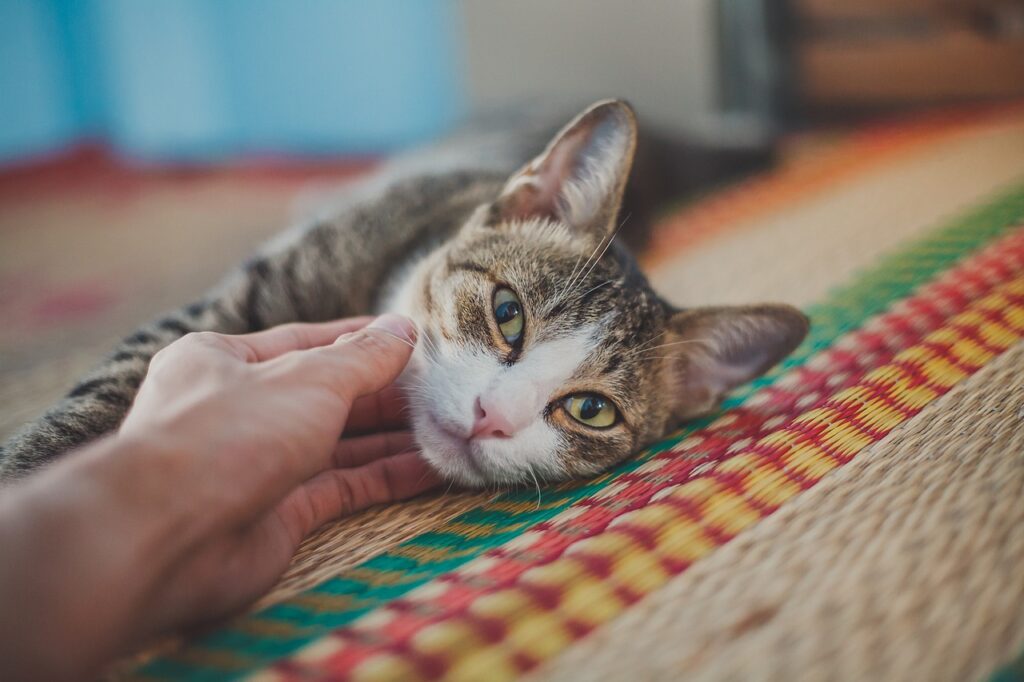
Introduction
Cats are resilient animals, but like all pets, they are susceptible to certain health issues. Knowing the most common cat health issues and how to prevent them can save you time, money, and heartache. From dental problems to obesity and parasites, this guide will cover the most frequent feline health concerns and offer actionable tips to help you keep your cat in top shape.
Obesity in Cats
One of the most widespread health problems among domestic cats is obesity. Overweight cats are at a higher risk for several chronic conditions, including diabetes, arthritis, and heart disease. The primary causes of obesity in cats include overfeeding, lack of exercise, and feeding a diet high in carbohydrates.
How to Prevent Obesity
- Control Portion Sizes: It’s essential to measure your cat’s food based on their age, weight, and activity level. Overfeeding, even with high-quality food, can quickly lead to weight gain.
- Scheduled Feeding Times: Avoid leaving food out all day (free feeding). Instead, feed your cat at specific times to regulate their caloric intake.
- Increase Exercise: Encourage your cat to play daily, using toys or interactive activities to keep them active.
Dental Disease
Dental disease is another common issue in cats, with more than 50% of cats over the age of three showing signs of gum disease. If left untreated, dental problems can lead to painful tooth infections, tooth loss, and even systemic infections affecting the kidneys and heart.
How to Prevent Dental Disease
- Brush Their Teeth: Regular tooth brushing can significantly reduce plaque build-up and prevent gum disease. Use a toothbrush and toothpaste specially designed for cats.
- Dental Treats and Toys: Incorporate dental chews or toys that help remove plaque as your cat plays or eats.
- Routine Vet Visits: Have your vet check your cat’s teeth during their annual exam, and consider professional dental cleanings if necessary.
Fleas, Ticks, and Other Parasites
Parasites like fleas, ticks, and intestinal worms can wreak havoc on your cat’s health. Flea infestations are particularly troublesome, leading to skin irritation, allergic reactions, and even anemia. Ticks can transmit diseases like Lyme disease, while intestinal parasites can cause malnutrition and digestive upset.
How to Prevent Parasite Infestations
- Regular Flea Treatments: Use a vet-recommended flea preventative, especially if your cat goes outdoors.
- Indoor Lifestyle: Keeping your cat indoors reduces their exposure to fleas, ticks, and other parasites.
- Frequent Grooming: Regular brushing can help you spot fleas, ticks, or signs of skin irritation early.
Feline Lower Urinary Tract Disease (FLUTD)
FLUTD encompasses a range of urinary tract problems that affect both male and female cats. Symptoms include difficulty urinating, blood in the urine, and frequent trips to the litter box. Male cats are particularly at risk for urinary blockages, which can be life-threatening if not treated promptly.
How to Prevent FLUTD
- Hydration: Encourage your cat to drink more water. Feeding them wet food can also increase their moisture intake.
- Litter Box Maintenance: Keep litter boxes clean and provide enough boxes for each cat in your household. Cats are more likely to develop urinary issues if their litter box is dirty or if they have to compete for it.
- Diet: Some specially formulated cat foods can help prevent urinary crystals and bladder stones, reducing the risk of FLUTD.
Allergies in Cats
Cats can develop allergies to certain foods, environmental factors (like pollen), or even fleas. Common symptoms include excessive scratching, licking, or biting of the skin, which can lead to hair loss and skin infections. Respiratory allergies may also cause sneezing or wheezing.
How to Prevent Allergies
- Flea Control: Regular flea treatments can prevent allergic reactions to flea bites.
- Dietary Adjustments: If your cat has food allergies, work with your vet to identify and eliminate problem ingredients.
- Environmental Management: Keep your home clean and dust-free to reduce your cat’s exposure to allergens like pollen or mold.
Chronic Kidney Disease (CKD)
Chronic Kidney Disease is common in older cats and can lead to symptoms like excessive thirst, weight loss, and frequent urination. While CKD is not curable, early detection and management can slow its progression and improve quality of life.
How to Prevent CKD
- Regular Vet Checkups: Early detection is key. Routine blood and urine tests can catch kidney problems before they become severe.
- Hydration: Keep your cat well-hydrated, particularly as they age. Offering wet food and providing access to fresh water can help.
- Specialized Diet: If your cat is diagnosed with CKD, a vet-prescribed diet designed to support kidney health can slow disease progression.
Respiratory Infections
Cats can suffer from upper respiratory infections caused by viruses or bacteria. These infections are more common in multi-cat households or shelters. Symptoms include sneezing, nasal discharge, and watery eyes.
How to Prevent Respiratory Infections
- Vaccinations: Ensure your cat is vaccinated against common respiratory viruses, such as feline herpesvirus and calicivirus.
- Isolation of Sick Cats: If you have multiple cats and one becomes ill, isolate them to prevent the infection from spreading.
- Good Hygiene: Clean your cat’s food bowls, water dishes, and litter boxes regularly to prevent the spread of bacteria.
Conclusion
By staying informed and proactive about your cat’s health, you can prevent many of the most common feline health issues. Regular vet check-ups, a balanced diet, proper hydration, and preventative care can go a long way in ensuring your cat stays healthy and happy. Prevention is always better than cure, and by following these simple steps, you can help your feline friend live a long and healthy life.
